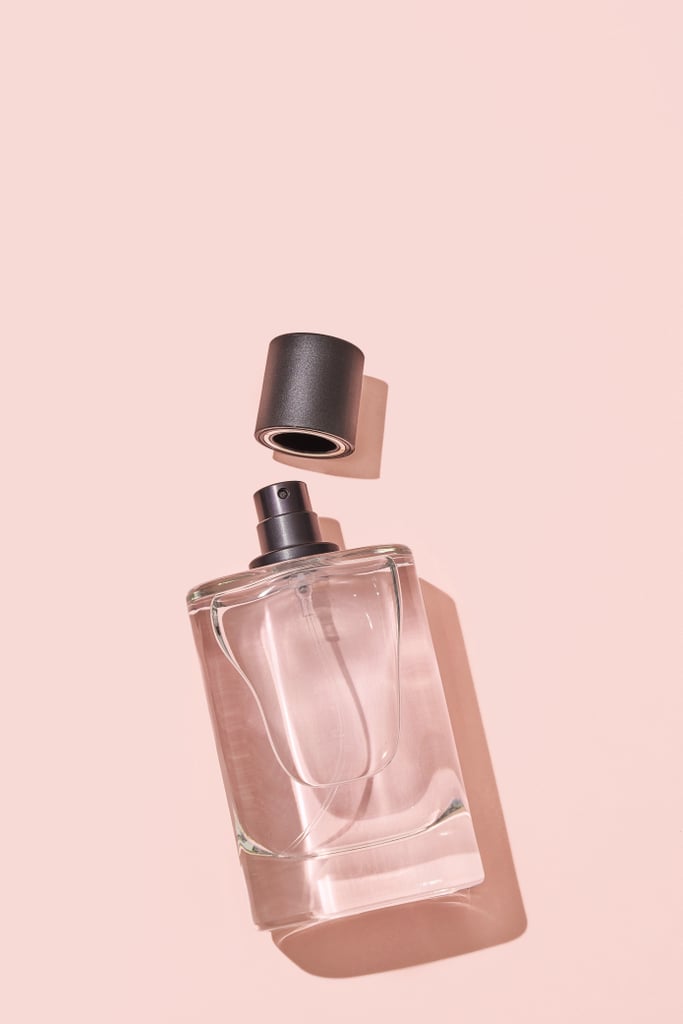As POPSUGAR editors, we independently select and write about stuff we love and think you’ll like too. If you buy a product we have recommended, we may receive affiliate commission, which in turn supports our work.
Our sense of smell is a funny thing. Alongside sight, touch, taste, and hearing, it’s one of the five ways in which our body collects information about the environment we’re in — but it’s not always entirely trustworthy. For example, have you ever found that a perfume or scent that normally wouldn’t bother you is suddenly so potent that it feels like you’re stuck in a nightmarish fog of fragrance? Our natural response to smells we don’t like is immediate and physical — we wrinkle our noses, pull faces, and can even experience nausea or headaches as a result. But why is this, and why do particular scents upset our nostrils on some occasions but not on others?
Let’s start with the fact that, stereotypically speaking, women are better at picking up on scents than men. “It’s pretty widely accepted that women are more sensitive to smell than men, meaning they’re better at detecting and identifying them, too,” says Beckielou Brown, perfume creator and cofounder of Altra Profuture. “One theory for the biological reason is that women have more cells in the olfactory bulb, which is the area of the brain that processes smell.”
It’s not entirely consistent, though, and this keen sense of smell can sharpen or dull depending on where you are in your menstrual cycle. “Studies have shown that around the time of ovulation, women display an increase in sensitivity to smell,” perfumer Nic Mastenbroek says. “It is understood that the hormones produced at this time impact the olfactory system and heighten the awareness of smells.” As oestrogen peaks, you’re likely to be able to pick up scents that you wouldn’t otherwise have noticed or smell things more intensely.
“Studies have shown that around the time of ovulation, women display an increase in sensitivity to smell.”
For this reason, the follicular phase (which comes after your period and is when oestrogen starts to rise) through to ovulation itself can either be a really good or a really bad time to shop for perfume. On one hand, it’s positive, as you will be very acutely attuned to what you do and don’t like — and won’t suddenly recoil from your new perfume in a week’s time. On the other hand, spritzing and sampling different perfumes when your oestrogen levels and sense of smell are heightened could be so overwhelming that it zaps the joy out of the experience. Heading home from perfume shopping with a scent-induced migraine is never ideal.
You may also find that you’re naturally drawn to some fragrances more than others during different phases of your cycle. It’s similar to food cravings in that you might be smugly meal-prepping healthy stir-frys during your follicular phase and then lustfully scrolling a delivery app for greasy carbs when your period arrives.
Remember, too, that scent is very closely related to your mood, which can obviously pit and peak throughout the month. “The olfactory bulb is located next to the limbic system, which is the part of the brain that governs our emotional and behavioral responses,” says Ruth Mastenbroek, master perfumer and founder of her eponymous fragrance line. “Our sense of smell is also more closely linked to memory than any other sense, so if an odor triggers a memory, it will simultaneously trigger an emotion linked to that memory.” Hence why the smell of a stranger wearing the same scent as your ex has the power to knock you off kilter.
Sometimes, though, our brain is one step ahead of us, and we don’t even realize why we’re suddenly feeling a certain way. “These closely related responses mean that we often find our moods altered without having consciously registered the scent we’ve been exposed to,” Brown says. “I love how quickly this works and how you can be transported to a moment in your past that you didn’t even know you remembered — all in an instant from a whiff of a nostalgic smell.”
Cycling your fragrances with your menstrual cycle can not only help you to avoid any smells you might find unpleasant but can also give you a much-needed boost when your mood plummets, period pains arrive, or those food cravings hit. It’s worth saying that not everyone’s cycle lengths are the same, and some can be shorter or longer than the average 28 days. In this instance, you might find that some phases last for longer, so just take the week-by-week information ahead as a rough guide and help find the best perfumes to wear throughout the month.
Source: Is Your Period Affecting Your Sense of Smell? | POPSUGAR Beauty













